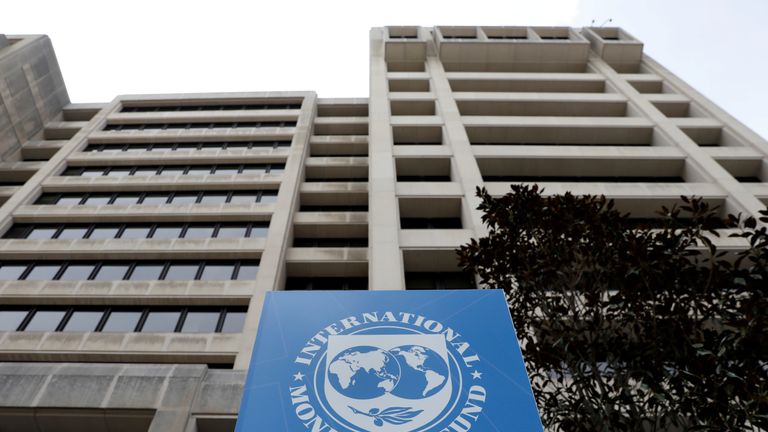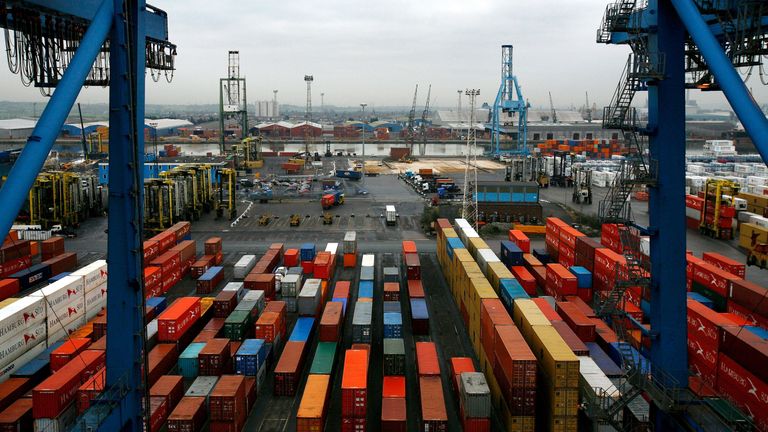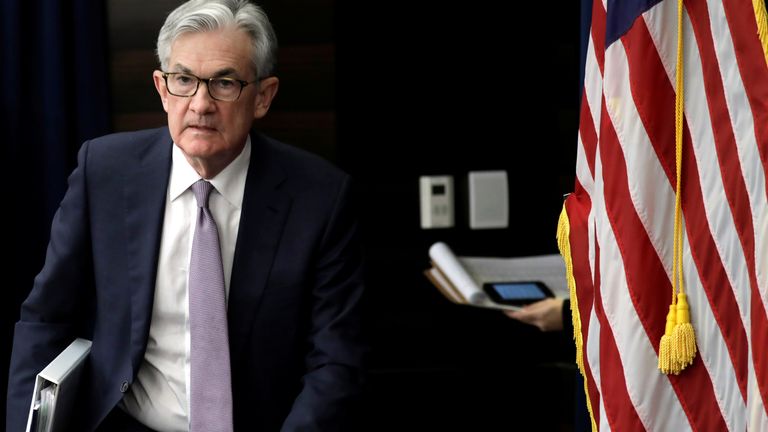The global economy is in “less dire” shape than it was earlier this year but now faces a “long, uneven and uncertain” road to recovery, the head of the International Monetary Fund has said.
Kristalina Georgieva told an online event at the London School of Economics that the IMF would make a small upward revision to its world economic forecasts when they are unveiled next week.
“The global economy is coming back from the depths of this crisis,” she said. “But this calamity is far from over.”
Ms Georgieva warned that the recovery risked being curtailed if governments cut off support too soon, fail to control the coronavirus and ignore debt problems in emerging markets.
“All countries are now facing what I would call ‘the long ascent’ – a difficult climb that will be long, uneven and uncertain. And prone to setbacks.”
The IMF managing director said economies across the world saw an “unprecedented fall” in the second quarter of the year when around 85% of them were in coronavirus lockdowns for several weeks.
In June, the organisation forecast a 4.9% contraction in GDP for 2020 – including a 10.2% collapse for the UK – marking the sharpest slump since the Great Depression of the 1930s.
“The picture today is less dire,” said Ms Georgieva in her latest remarks, with developments since June “somewhat better than expected”.
She said $12trn (£9trn) in support from governments for households and firms, together with central bank monetary policy – which has included ultra-low interest rates and bond purchases – had “put a floor under the world economy”.
For the US and the eurozone, the downturn has been “extremely painful” but less severe than expected while China was experiencing a better than anticipated recovery.
Yet the scale of policy support has been uneven, and some countries “still hurting badly” would see their outlooks revised on the downside next week, said Ms Georgieva.
That was because richer countries were able to do “whatever it takes” but poorer nations had to “strive for whatever is possible”, she added.
Ms Georgieva’s slightly improved outlook for the world economy overall was echoed by a new forecast from the World Trade Organisation.
It now sees global goods trade shrinking by 9.2% this year, far from the collapse of 13-32% predicted in April and short of the 12.8% decline experienced during the global financial crisis in 2009.
The WTO also credited aggressive fiscal and monetary policies with supporting demand.
Comments from Jerome Powell, chair of the US Federal Reserve, also seemed to chime with those of Ms Georgieva.
He warned that a tentative recovery from recession in the US could falter unless the government supplies additional economic support.
Meanwhile Spain, suffering from a second wave of coronavirus infections, downgraded its outlook.
It now expects the economy to shrink by 11.2% this year, down from a previous prediction of a 9.2% contraction.



